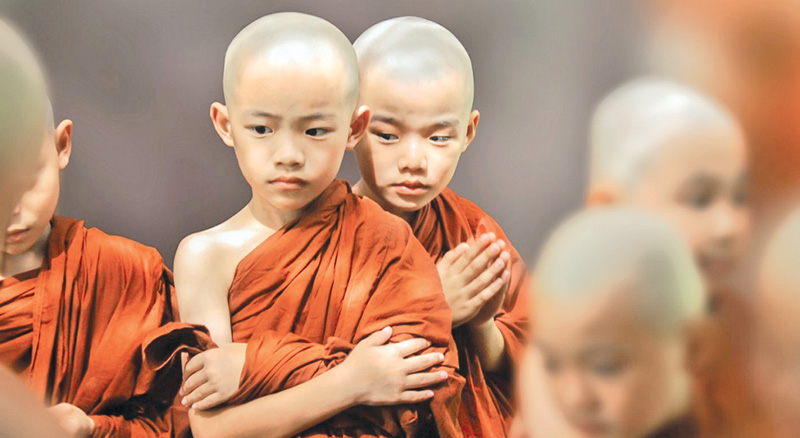Buddhism comes West as a vast body of teaching, and we who receive it are often awed by its abundance, its complexity, and its subtlety. Where is the center, the real thing we should fix on? Or is there a real thing at all to be apprehended? History shows that Buddhism can and will accommodate itself to new cultures, and will flourish according to the perceptiveness and energy of its new adherents. Now in the West our perceptiveness and energy are put to the test to grasp the "real thing" by which this religion lives — its radicalism.
Suffering
The Buddhas only point the way, and the way they point is a difficult one through the perfection of morality, concentration, and wisdom to the freedom from suffering called Nibbana. It is a way of action. A path is useless without the will to follow it, and good intentions alone are futile. To make the journey, the roots of mental defilement must be torn out entirely; the old illusions we live by must be shattered; the mind must seek the light. It is a radical way, because the Buddha enjoins us to give up what is before, give up what is behind, and give up what is in between. Then and only then will the wheel of birth-and-death be knocked from its axis.
Rebellion
Those of us in the jaded and desperate West who hear the resonance of truth in the teachings of the Buddha must hear also that urging to act, to start an inner rebellion against our ancient sloth and stupidity. Yet the more we ponder the more we recognize the enormity of the task, and an understandable reaction is to set about re-defining just what has to be done and just how prudent it might be to fling ourselves into action. The danger here — so typical in our comfortable and seductive society — is to forget the radical imperative of suffering and try to make over Buddhism into a tame amalgam of platitudes suitable for pleasant contemplation — praising it in order to avoid practicing it. Indeed, Buddhism is rational, patient, deep in wisdom, but should we then just bask in its reflected light?
Delusion
Complacency is death. If, out of custom and timidity, Western Buddhists turn their religion into a museum piece, or worse, a hobby, they lose the essence. It is easy enough to settle for an undemanding status quo, a modicum of calm, a pleasant sense of harmonious living, and it is easy enough to postpone or forget any effort to break the shackles of old delusion, believing that one need not strain when the road will likely be long. But in accommodating too much to personal or societal expediency we cheapen our ideals and slide further from the disturbing implications of the Noble Truth of Suffering.
Endurance
We may even take the Buddhist vision of kamma as an indication that "everything is as it should be." But everything is not as it should be. Everything is in fact miserable. If we are complacent we blind ourselves, and there is no safety in blindness.
In the radical view of the Buddha, Samsara is no cosmic merry-go-round, but a terrible juggernaut of birth and death dragging beings through endless cycles of woe. "Free yourselves!" says the Buddha. All lives and events are variations on the theme of suffering. All are without substance, endurance, permanence — merely a web of emptiness, void upon void. The "self" that everyone spends so much time defending and nurturing is pure fiction. Dismiss it, says the Buddha. The world will not conform to our wishes and to presume otherwise is folly; the disciple must cease clinging to it and proceed along the path to the end of suffering. The root problem is craving, and the radical solution is the destruction of craving through wisdom.



Add new comment